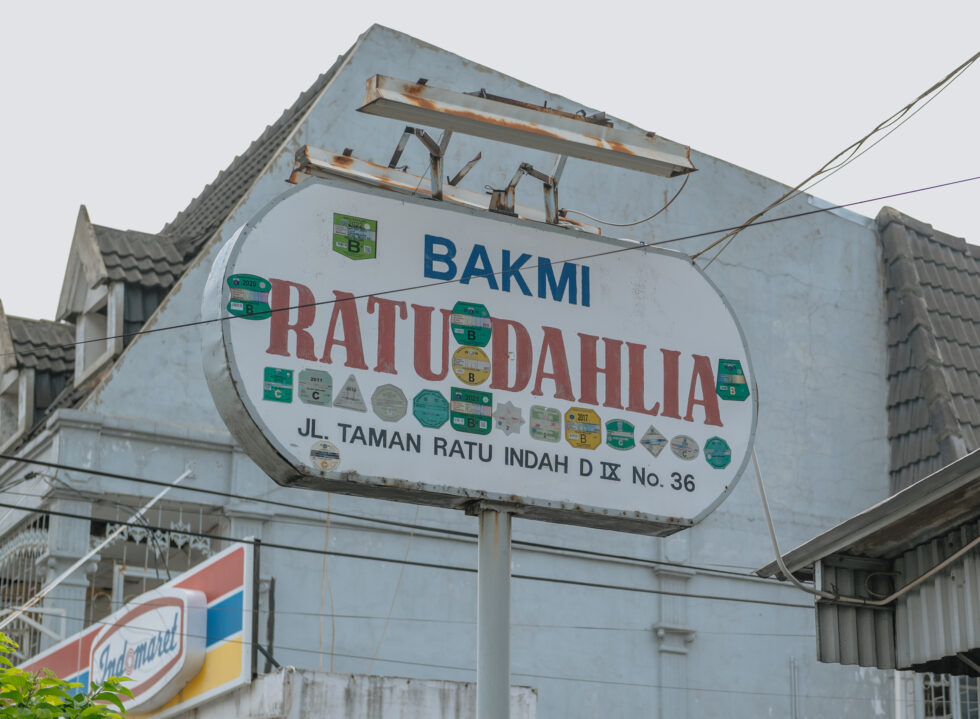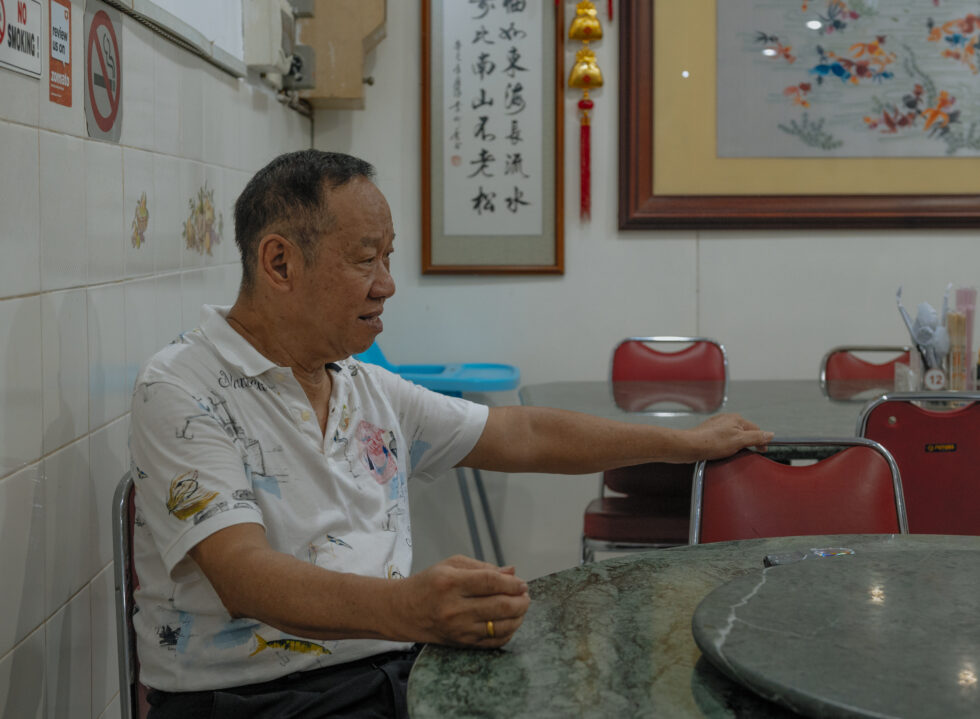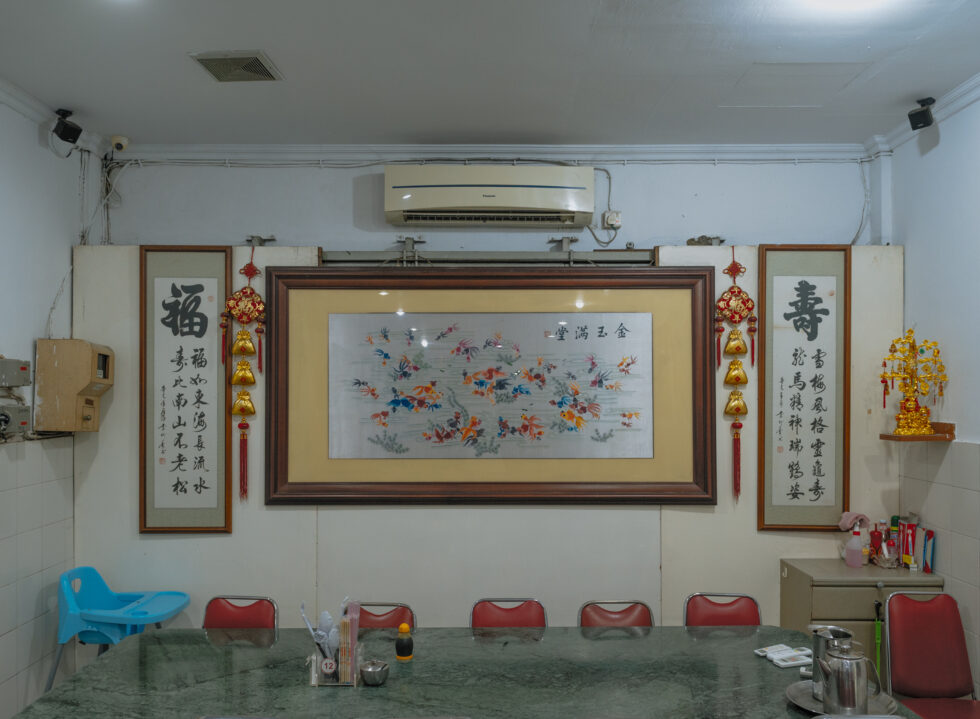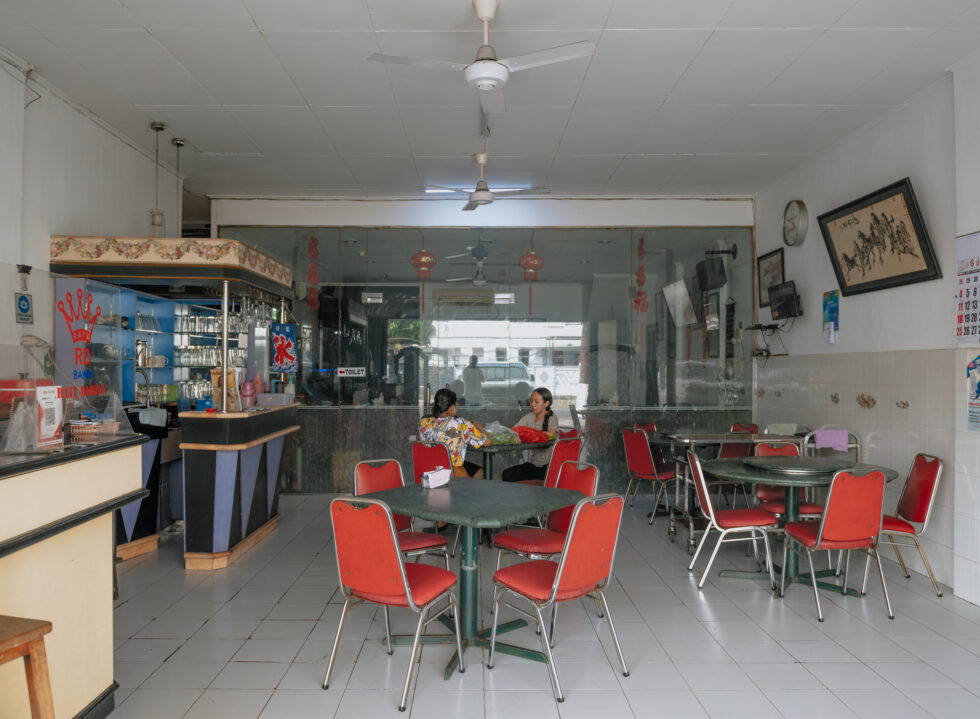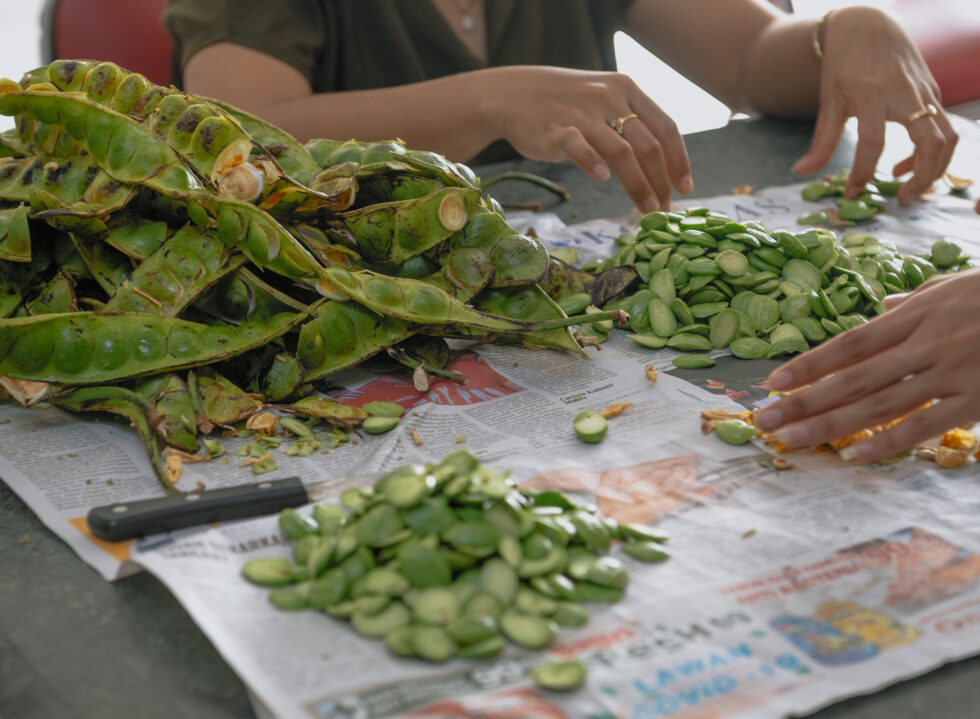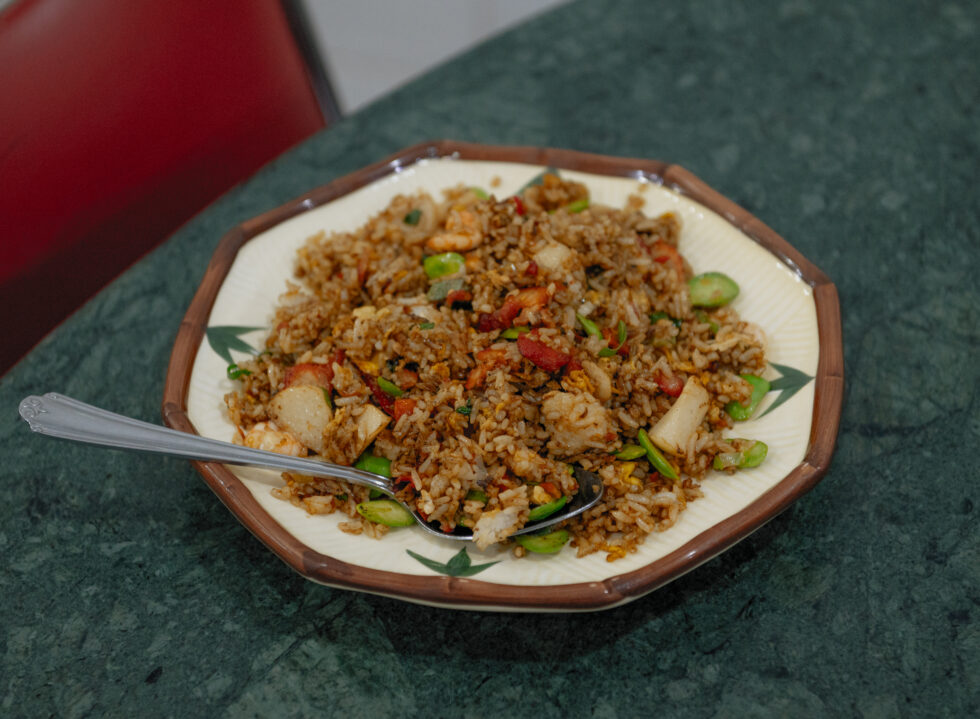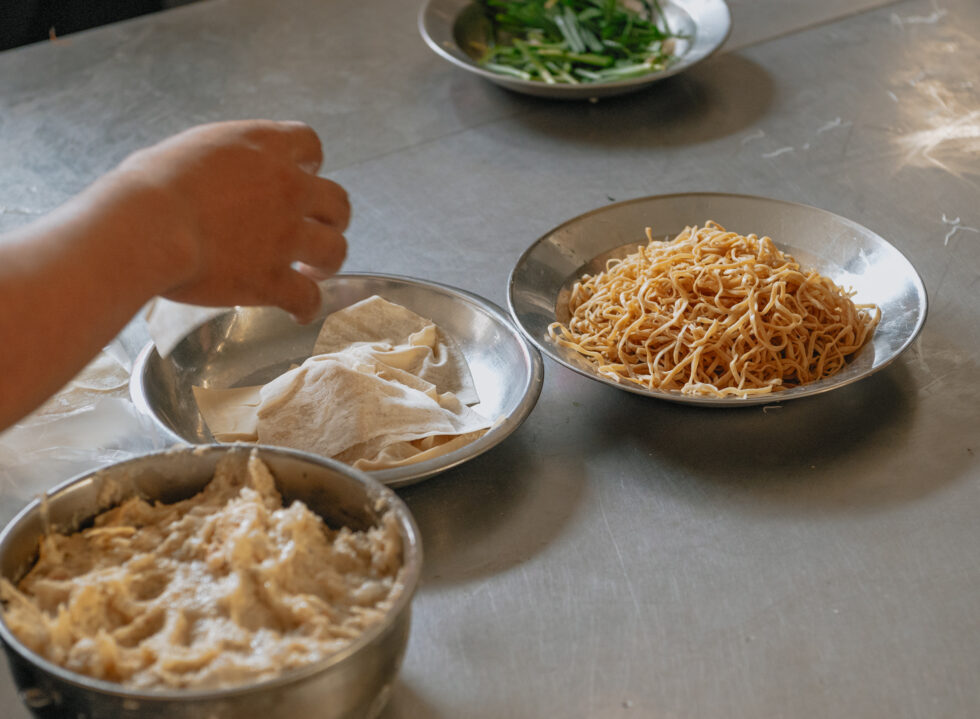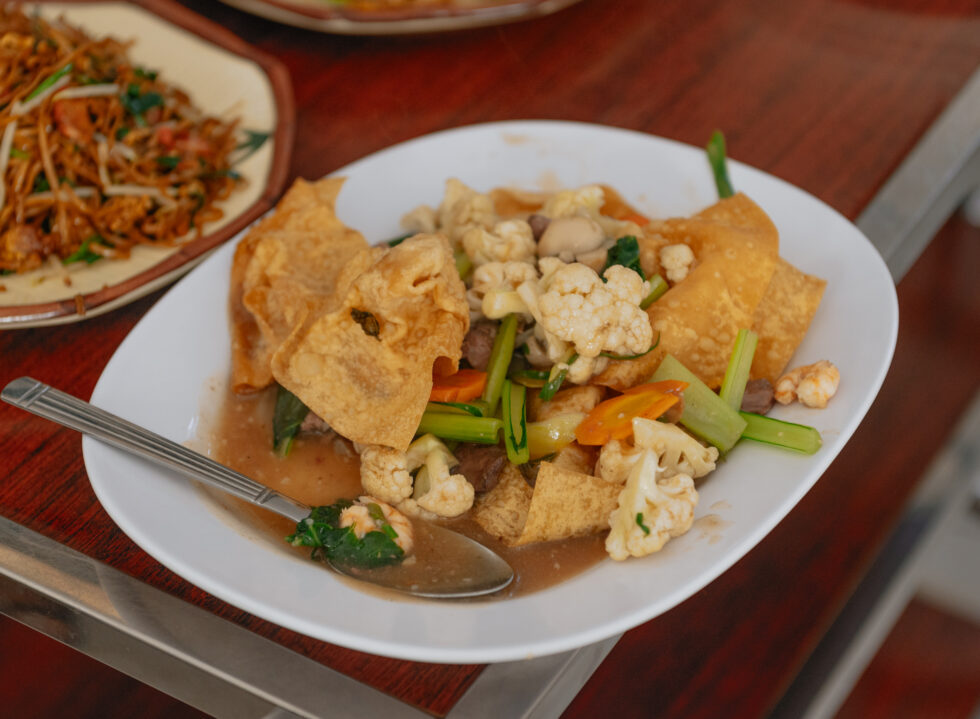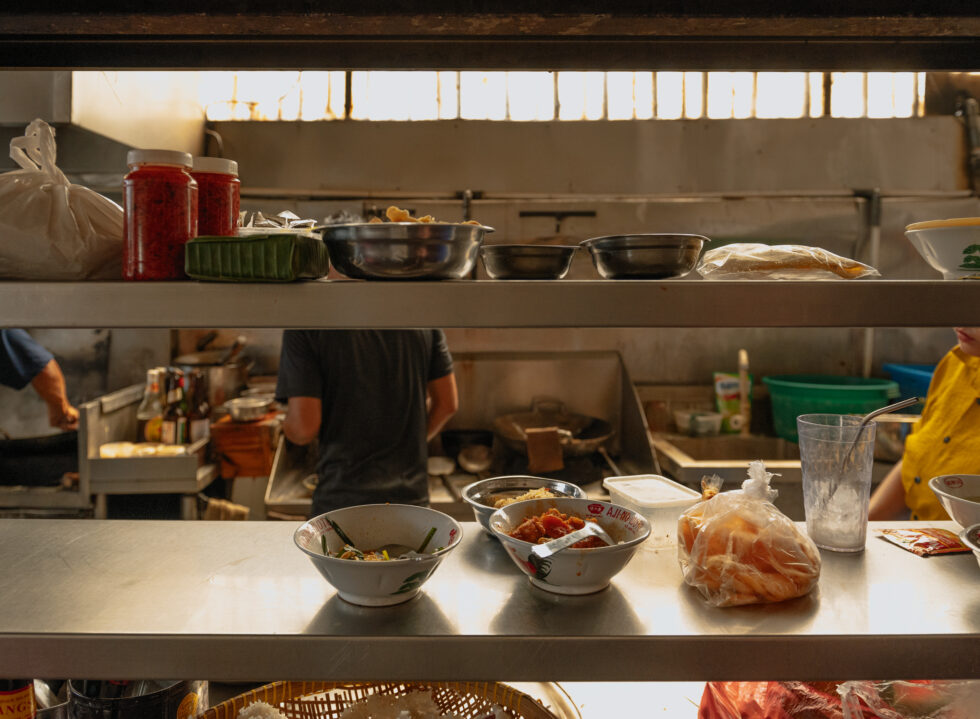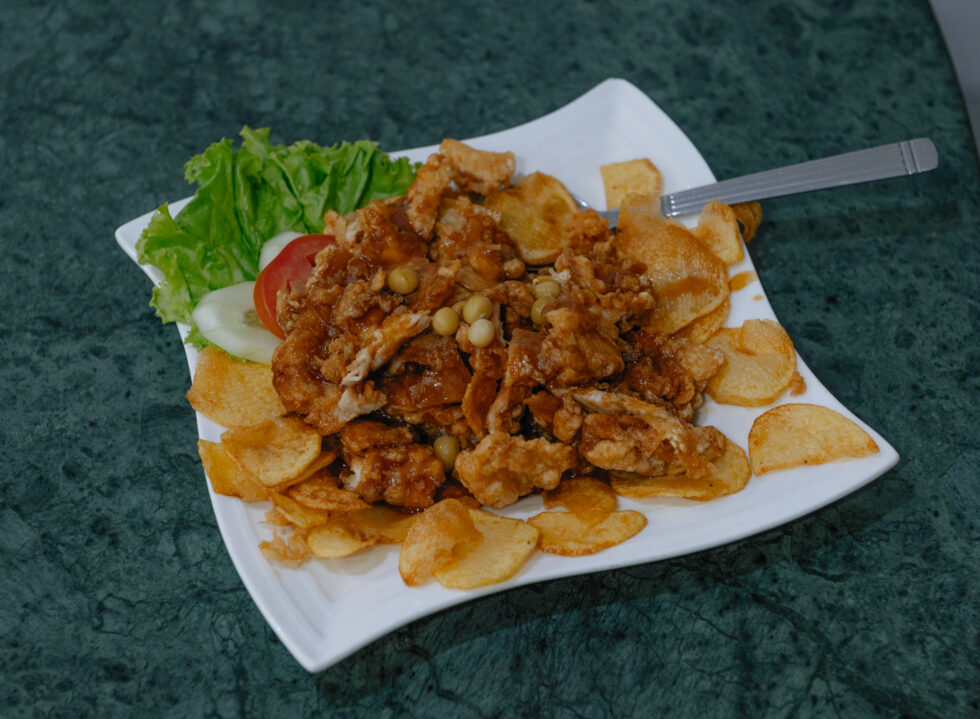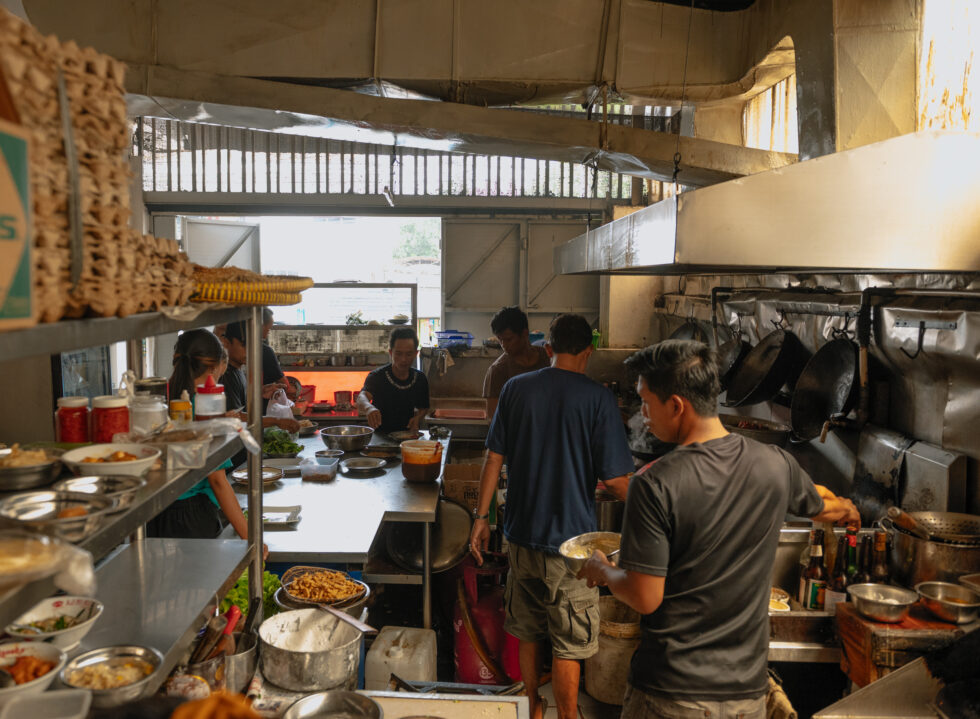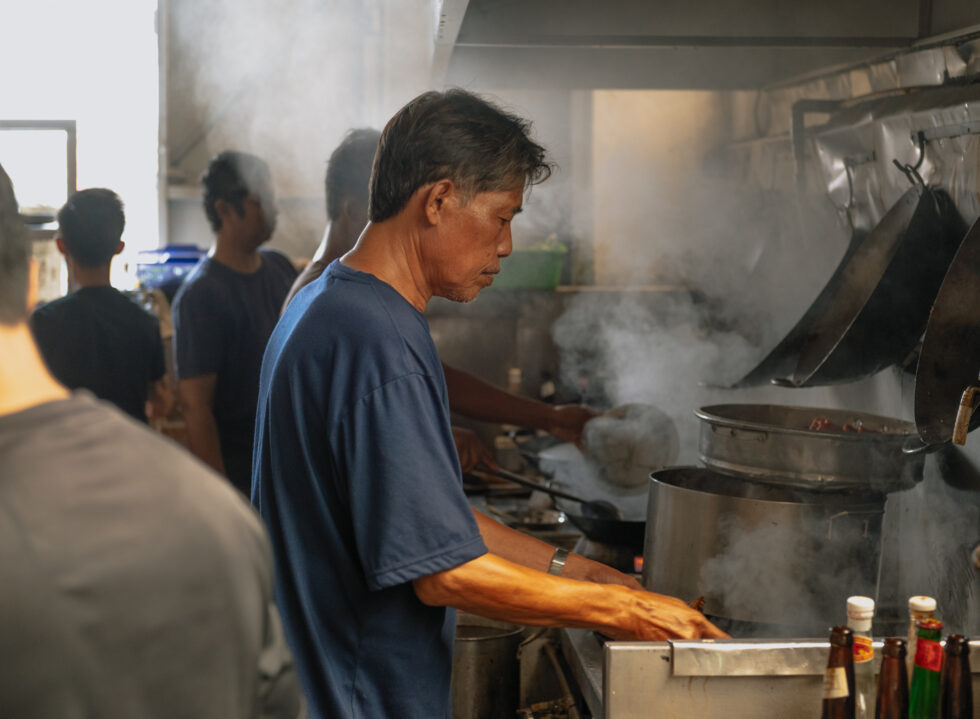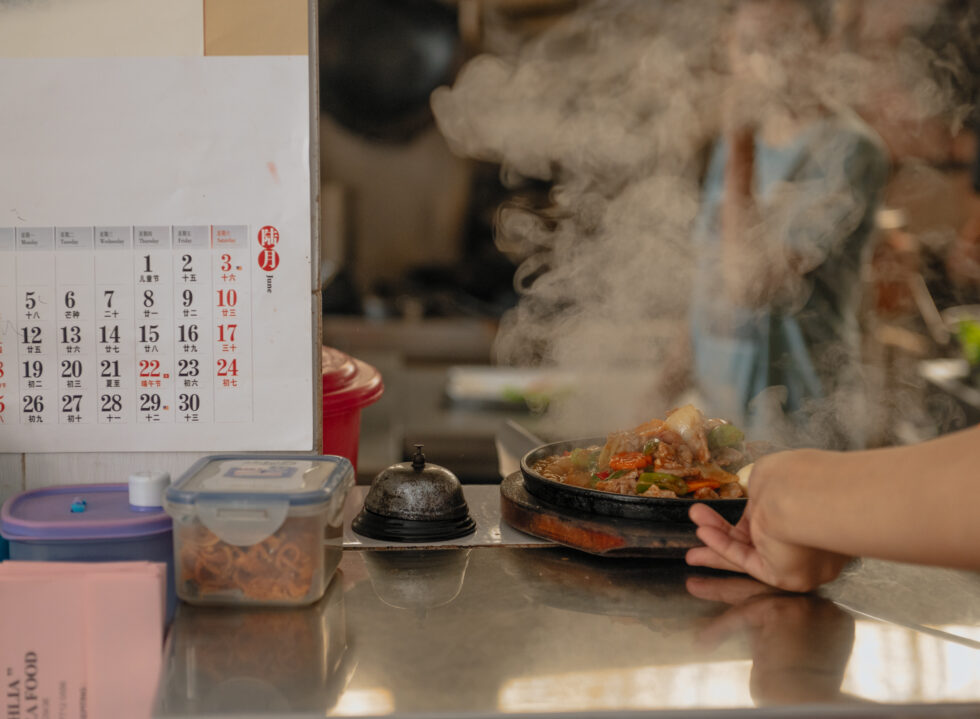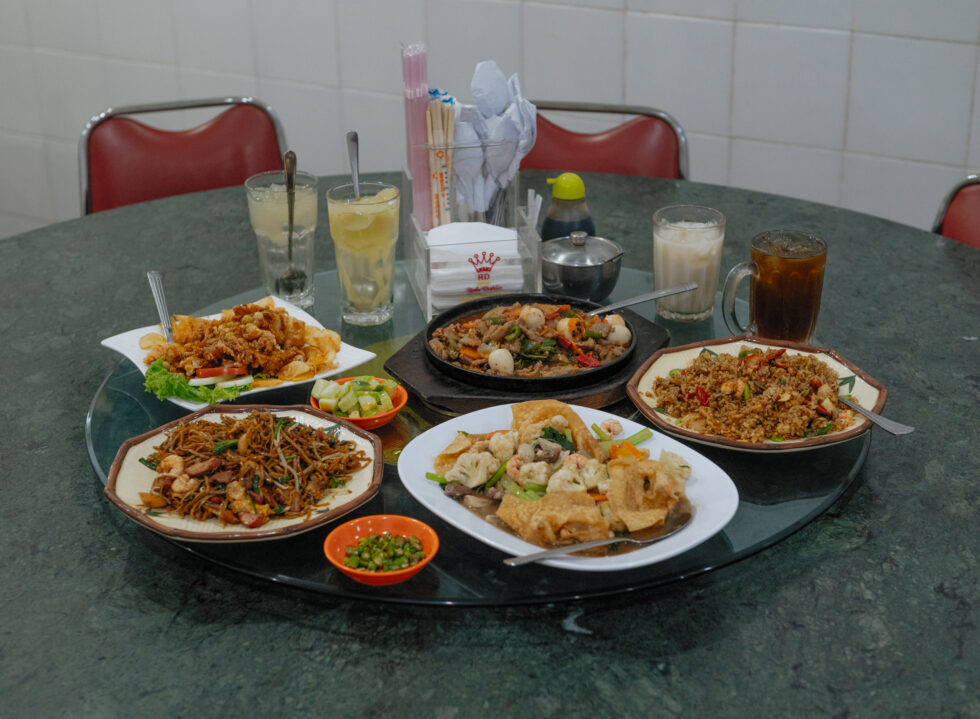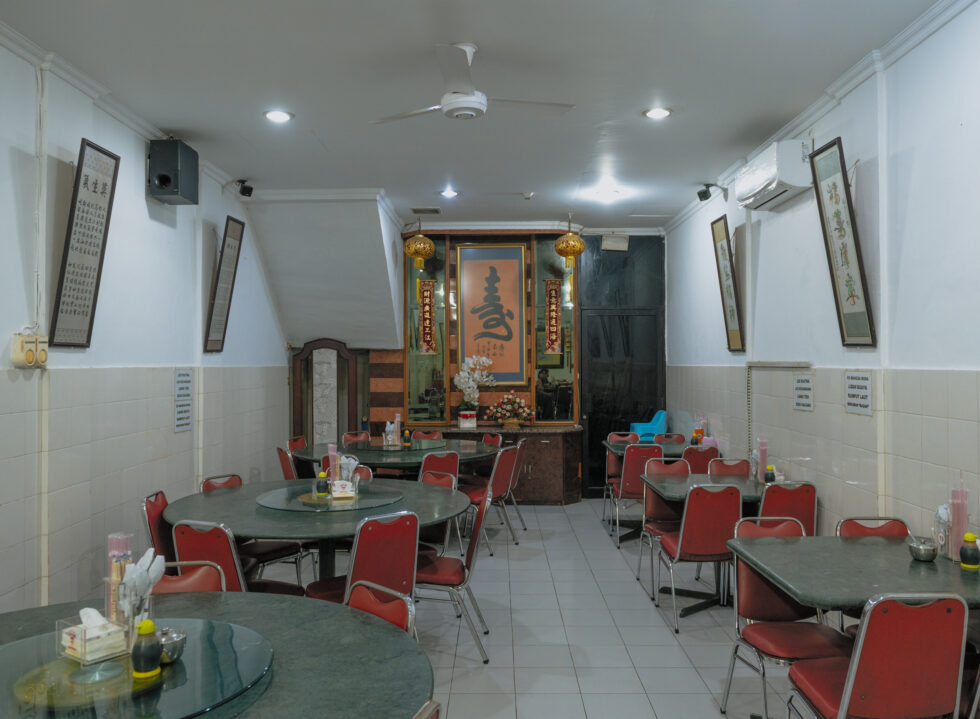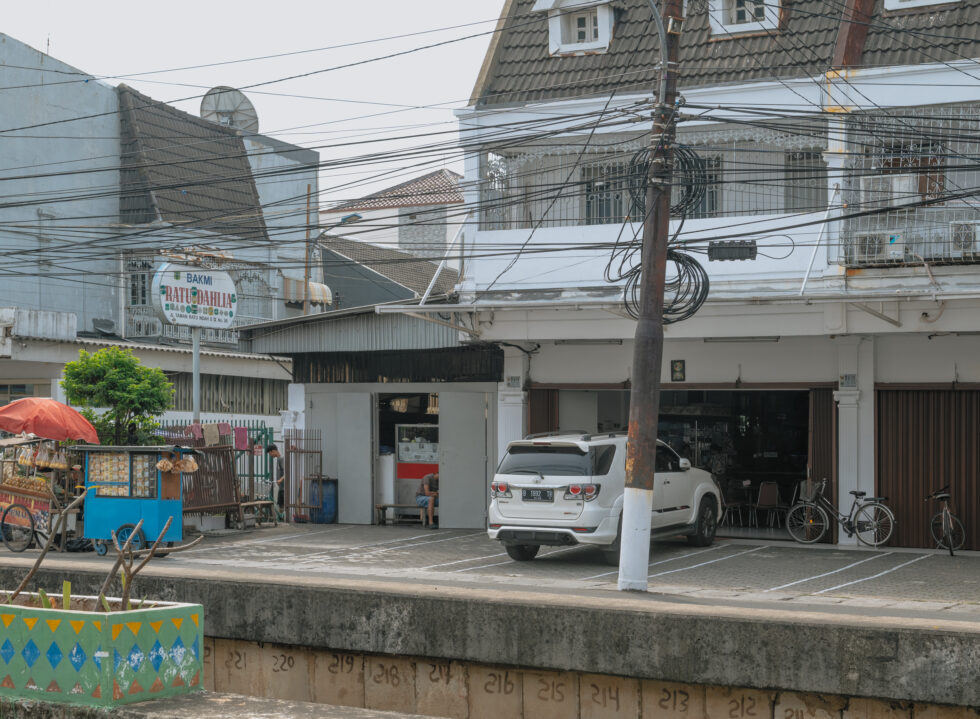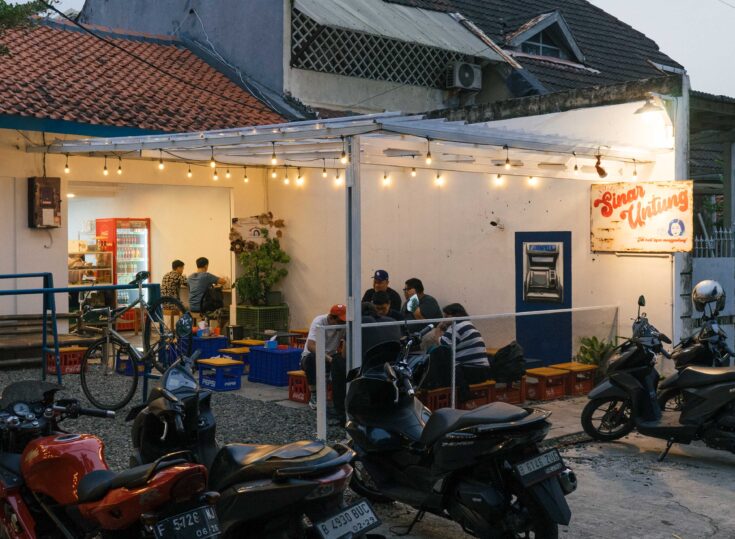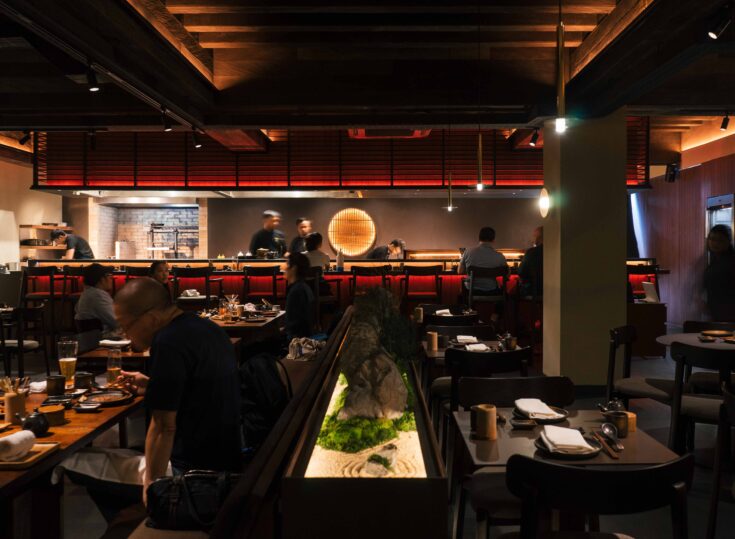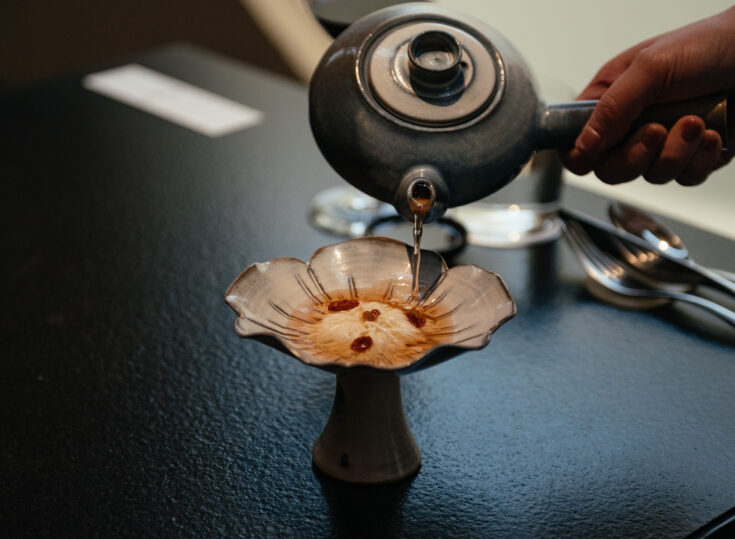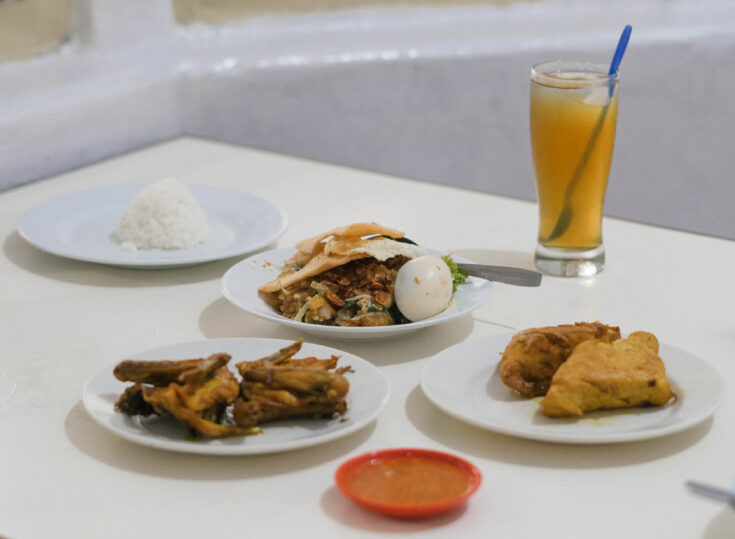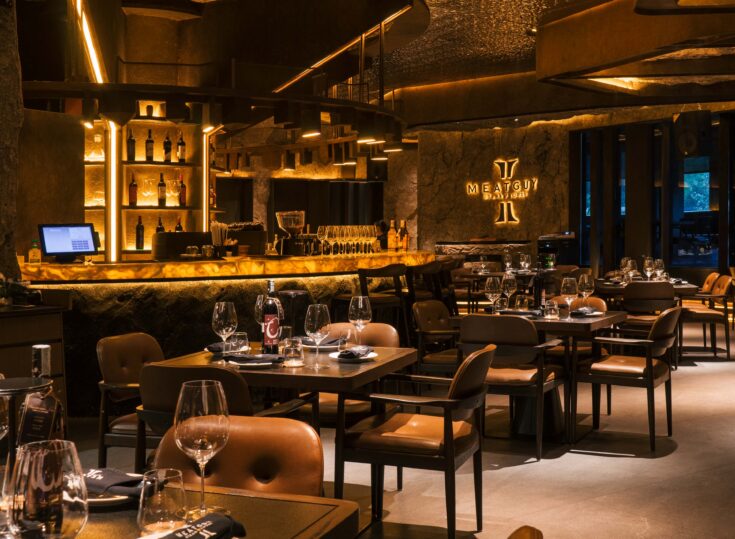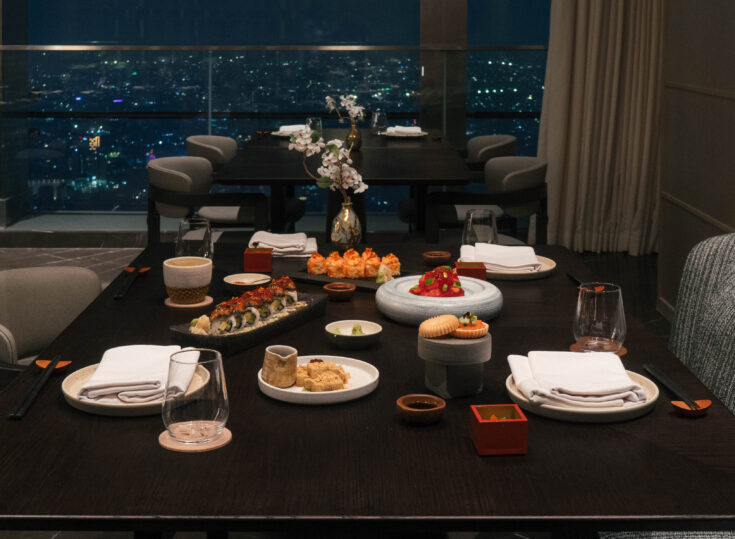The 35-year-old Bakmi Ratu Dahlia in Duri Kepa, West Jakarta presents itself like a time capsule: old Chinese proverbs cover the walls of the white-tiled eatery, overlooking green jade tables—each one decked with a lazy susan—alongside calligraphies, wood paintings and red lantern decor.
Attracting familiar faces who can recite their orders by heart, any regular would recognise the wandering presence of the restaurant’s owner, Hengky. A typical day sees the 70-year-old doing the books behind the front desk, overseeing the workings of the kitchen or regaling the customers with his thoughts on today’s events.
Newcomers might make the mistake of thinking that bakmi would be the eatery’s core specialty—but that only represents a fraction of the offerings here. Flipping through the menu would reveal a list of around 200 items of old-school Chinese Indonesian fare infused with Cantonese and Hakka influences, covering noodles, rice, seafood, stir-fried vegetables, pigeon and even frog.
To start with, there’s the Mie Goreng Mo Yan, a fragrant dish of homemade noodles stir-fried with shrimp, pork and egg as well as bean sprouts and cabbage, enveloped in a sweet-savoury blend of flavours with a smoky aftertaste. The Hot Plate Kangkung Sapi is favoured by the younger crowd, a compilation of tender sliced beef, vegetables and quail eggs in a thick caramelised sauce that still sizzles upon arrival to the table. And to quench one’s thirst, grab a glass of Es Lidah Buaya, a light and refreshingly sweet aloe vera syrup with toothsome jelly.
Whichever one might go for, dishes roll out of the kitchen within ten minutes of ordering. “Our regulars call it fast food,” joked Hengky, who based the eatery’s rapid system on his experience working at Hong Kong restaurants in the city.
The dining house sees its busiest days on weekends and national holidays, where families crowd the table, spinning the lazy susan to relish its plethora of side dishes. Hengky maintains close bonds with most of them—some have even known him since his early restaurateur days in Lampung, contributing to the diner’s longevity and word-of-mouth recognition throughout time.
One might ask why they keep returning, and Hengky would be glad to explain his theory, “In Chinese belief, there are three determining factors to a good meal: variety, fragrance and then flavour. To me, there is a fourth: it’s the feeling after the meal, when the flavours linger. Or as they used to say, when the taste clings between your teeth.”
